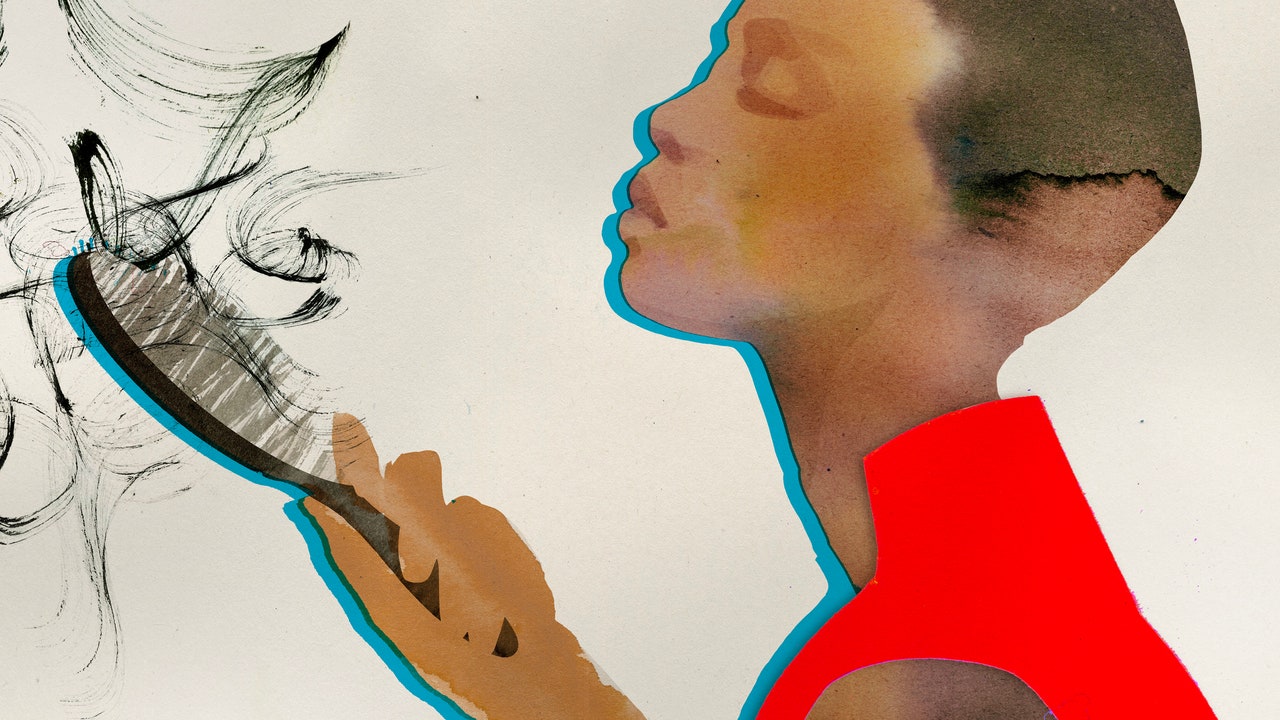CCCA is a chronic condition without a cure, says Dr. Lenzy. Flare-ups of inflammation can occur throughout the patient’s lifetime, so managing it takes long-term commitment on their part.
Treatment for CCCA begins by stopping the inflammation. Dermatologists regularly prescribe topical steroids in the form of ointments, creams, or gels that are applied to the scalp for their anti-inflammatory properties. Beaford began applying topical steroids immediately after diagnosis. Next, for deeper penetration into the scalp, her dermatologist moved to steroid injections, which were initially administered once a month for eight months.
In recent years, doxycycline, an antibiotic, has emerged as another option in the management of CCCA. In an analysis published in 2024, researchers found that using a low dose of doxycycline combined with a steroid regimen in the treatment of CCCA improved hair regrowth. Says Dr. Lenzy, “That has been a great paper to have in our arsenal to share with patients, to explain why we use a low dose of an antibiotic, even though [CCCA] is not an infection.”
Another newer treatment for CCCA that shows promise is metformin, an anti-diabetic medication. A small 2024 study found that low-dose metformin led to evidence of regrowth in CCCA patients and suppressed fibrosis markers.
Dr. Ogunleye stresses the importance of early intervention in treating CCCA. “Once a hair follicle is destroyed, we can’t reverse that scarring process,” she explains. “The primary goal of treatment for CCCA is to stop the process [of hair loss], or halt the progress [of hair loss], and that may or may not include regrowth of hair.”
To improve the chances of hair regrowth in affected areas where severe scarring has not occurred, Dr. Ogunleye and Dr. Lenzy both add topical minoxidil, the active ingredient in Rogaine, to patient treatment plans. Supplements like Nutrafol and Viviscal Pro may also be used to aid in the growth and thickness of the hair, though the research on supplements is less conclusive for CCCA. (And you should always consult a board-certified dermatologist before starting a supplement treatment plan, even if they’re available over-the-counter.)
There are also in-office treatments patients can try for hair regrowth, including platelet-rich plasma, or PRP, injections, in which platelets are injected into the scalp at the level of the hair follicles to assist in hair-growth stimulation. Another advanced treatment is laser-assisted growth-factor delivery, in which lasers are used to open the scalp’s pores to enhance the absorption of topical growth factors. However, both of these procedures are variable in their success rate, Dr. Lenzy notes, and shouldn’t be considered first-line treatments.
The Cost of Treating CCCA
Dr. Lenzy says she’s seen a lot of women become defeated after diagnosis, thinking they’ll have to come up with hundreds of dollars for advanced treatment. While treating any chronic condition can become expensive, the initial steps to combat the inflammation CCCA causes are often quite affordable.

